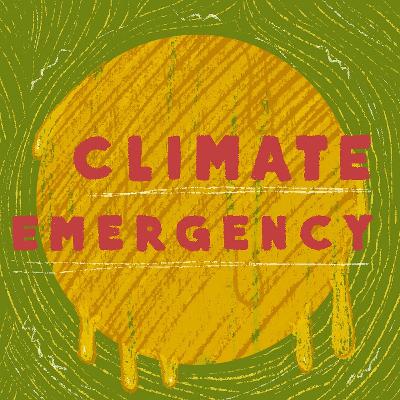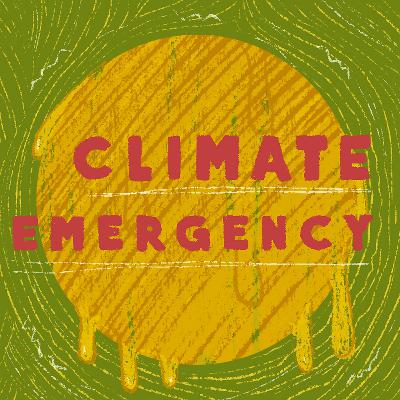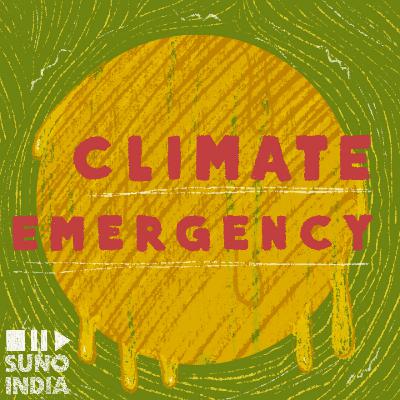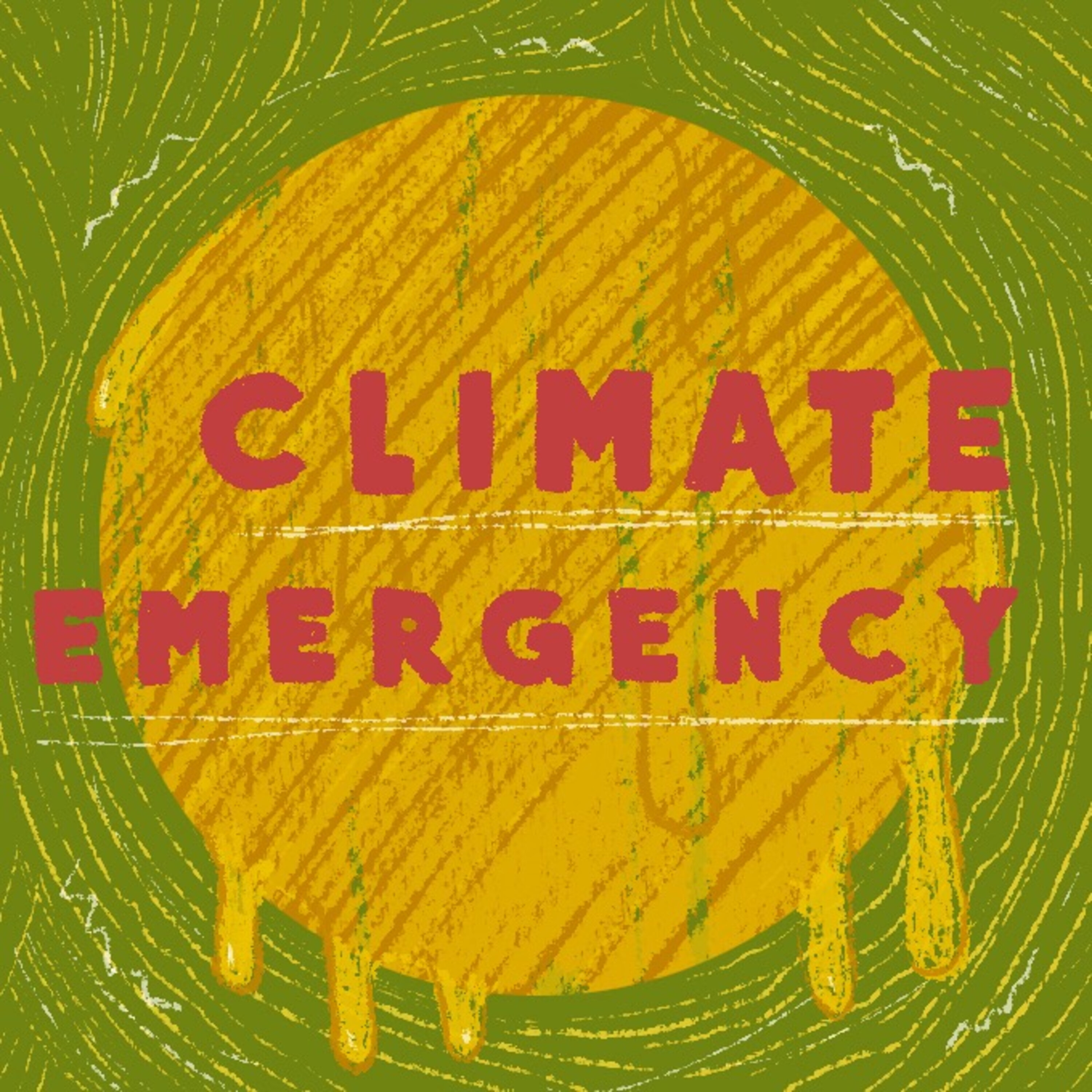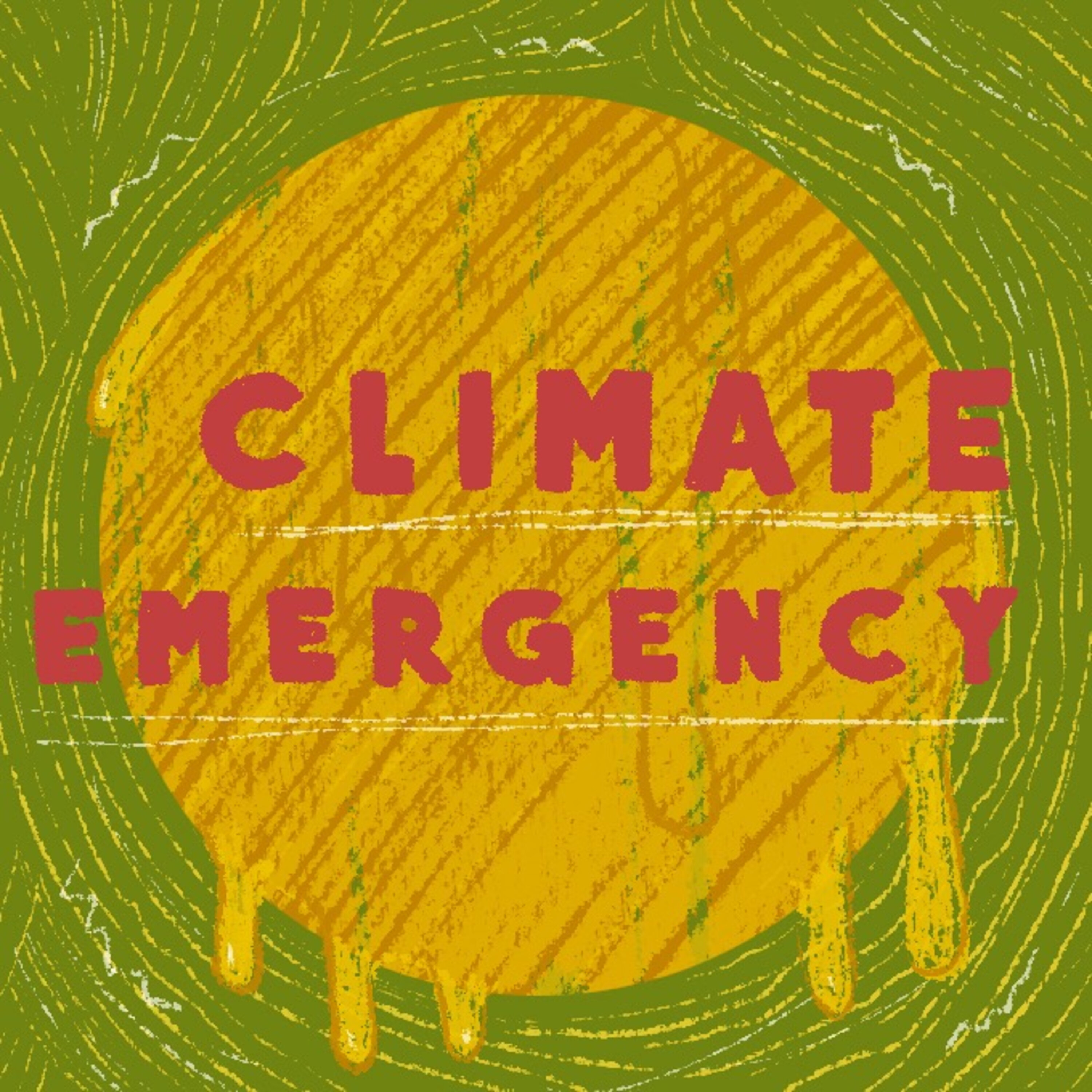Discover Climate Emergency
Climate Emergency

Climate Emergency
Author: Suno India
Subscribed: 62Played: 319Subscribe
Share
© 2025 Suno India
Description
In India, every year, the summers are getting longer, the winters harsher and the downpours intense. Floods in Assam, droughts in Tamil Nadu and growing problem of water scarcity in many states are no longer an abnormality but the new reality!There is an urgency to solve the problems caused by human induced climate change and to understand and find solutions before it is late. This is Climate Emergency and we will bring to fore and discuss the growing impact of climate change. We will also highlight and celebrate climate champions- individuals and communities who are undoing the damage done so far
99 Episodes
Reverse
Bihar has the lowest electricity consumption per person in India, mostly due to lack of power availability. The government is now focusing on solar energy projects, like rooftop installations, floating solar panels, and solar street lights, to boost clean energy. But is this solar energy boom in Bihar addressing the energy poverty challenge? Suno India’s Sneha Richhariya travelled to the neighbouring villages in Gaya district of Bihar to understand how renewable energy is penetrating in Bihar. This episode explores the extent of solar adoption in the state and looks at whether solar adoption in Bihar transcends socio-economic factors like income, occupation and caste. This is the third story as part of a three-episode mini-series supported by Earth Journalism Network. See sunoindia.in/privacy-policy for privacy information.
In this final episode in the Joshimath series, Sudeshna Chowdhury speaks to an anthropologist, Lokesh Ohri who talks about how ancient rituals had always held nature in high esteem and how a sustainable development model is paramount for protecting the Himalayas.See sunoindia.in/privacy-policy for privacy information.
The Tapovan Vishnugad hydropower project undertaken by NTPC since 2006 is the biggest bone of contention between the people of Joshimath and the government. Residents say that it is this project that has caused disaster in the region. On the other hand, government representatives have steered away from blaming the NTPC for the disaster. Sudeshna Chowdhury speaks to different parties to unravel the reasons behind the disasterSee sunoindia.in/privacy-policy for privacy information.
Studies in the 1970s indicated that the town is located in a fragile area rendering the region unsuitable for construction of massive infrastructural projects. In this episode, Sudeshna Chowdhury speaks to scientists and environmentalists to understand the landscape of the place and what lies beneath its earth that makes it susceptible to land subsidence.See sunoindia.in/privacy-policy for privacy information.
Joshimath, an ancient spiritual town in Uttarakhand, is facing an existential threat due to land subsidence or urban sinking. Future of people who call this town their home is uncertain. The entire region has been divided into danger zones and safe zones. Some residents seek compensation to give up their homes while some don’t want to move at all. Sudeshna Chowdhury visits the town and speaks to residents to find out more about the issue.See sunoindia.in/privacy-policy for privacy information.
This summer, temperatures in India soared beyond 45 degrees Celsius, sparking discussions about the necessity of cooling as a fundamental need rather than a luxury. In India, fans, coolers and later air conditioners have been effectively used for seeking comfort from the heat. But with rising CO2 levels, experts have expressed the need for sustainable cooling methods. In countries with modern and planned infrastructural settlements such as Japan, Canada, Middle East, Sweden, USA, France and some parts of Europe- ‘District Cooling’ has been used as a popular cooling solution. But what exactly is district cooling? How does cooling happen in a typical district cooling setup? How climate-friendly is this solution? And is it a viable solution for India? Suno India’s Sneha Richhariya speaks to Sudheer Perla who is the Managing Director of Tabreed Asia. Tabreed provides district cooling solutions in the UAE and Gulf Cooperation Council. They plan to collaborate with Indian real estate companies and corporations to establish district cooling systems, targeting airports, aero cities, and green buildings. See sunoindia.in/privacy-policy for privacy information.
In the past few years, Jharkhand has seen extreme climate shifts which have affected the forests. The forests are home to various forest flowers, fruits, roots and stems that have been used for medicinal, consumption, healing, trade and many purposes and some have also been used as a livelihood measure. Many products have also been used in urban centres in daily cooking, like lac and tamarind. The climate shifts have resulted in reduced forest produce, affecting the livelihoods of tribal people here. For reporting on this episode, Sushmita visited remote villages located deep inside forests. She interviewed activists and government officials to understand this issue. This podcast was supported by the Pulitzer Center.See sunoindia.in/privacy-policy for privacy information.
Extreme heat this summer has indicated the need for a robust urban cooling system. It shows an urgent need to build community cooling centres which can be accessed by the most vulnerable groups such as the urban poor, women and elderly. To understand the challenges and solutions for urban cooling in Indian cities, Suno India’s Sneha Richhariya spoke to Abhiyant Tiwari, who is the lead climate resilience and health consultant at National Research Development Corporation or NRDC India. He talks about the feasibility and scalability of cooling strategies like community cooling centres and district cooling systems, and effective integration of cooling measures in city planning.See sunoindia.in/privacy-policy for privacy information.
This year, Delhi faced severe heat waves with temperatures that soared past 45 degrees on several days. The most vulnerable people—those who live in informal settlements—suffered the brunt of this extreme weather. The Union Health Ministry and India Meteorological Department issued public health advisories as heatwave conditions persisted in various parts of the country. The advisories talk about following precautions such as monitoring the health of vulnerable individuals, staying hydrated, staying indoors during peak hours, keeping the house cool and so on. Suno India's Sneha Richhariya visited Nandlal Juggi in Gopalpur village near Mukherjee Nagar in North Delhi, to understand whether these advisories reflect the lives of the urban poor and more. See sunoindia.in/privacy-policy for privacy information.
There is a strong belief that recycled plastic is always good for the environment, and is safe to use. But increasing, increasing evidence shows that recycled plastic should be used with caution. Toxics Link, a Delhi based environmental research and advocacy organisation conducted a research to assess the toxic contaminants in recycled plastic products that were recycled in Delhi. As part of this study, 15 samples of recycled plastic products, including food contact materials and toys were tested. In this episode, Suno India’s Sneha Richhariya spoke to Priti Mahesh who has authored this study. She talks about several issues related to recycling of plastic. Some of these are: The recycling of plastic waste in India is mostly done by the informal sector which uses unsound, improper recycling methods. All recycled plastic products are not necessarily safe to use. There are harmful contaminants in recycled plastic that could pose health risks. This is an understudied subject The laws and policy regarding plastic recycling in the country There is a need for enforcement and standardisation of plastic recycling in India See sunoindia.in/privacy-policy for privacy information.
As part of an aggressive push on solar, there is a strong emphasis on establishing “solar cities” in Uttar Pradesh. Ayodhya is being developed as a model solar city under the Solar City program in Uttar Pradesh.
How far is Ayodhya from becoming a Solar city? How will the Solar City initiative change Ayodhya and the lives of its people? Where do people stand in Ayodhya’s Solar city dreams? Suno India’s Sneha Richhariya travelled to energy poor areas of Uttar Pradesh to find out what the solar schemes like PM Suryaghar Muft Bijli Yojna and other policies on solar mean to the people. In this episode, the focus is on Ayodhya as it is being planned as a “solar city”See sunoindia.in/privacy-policy for privacy information.
Connecting more and more people with solar energy has become an election plank for the ruling Bharatiya Janata Party. Under the PM Surya Ghar Muft Bijli Yojana, announced by Prime Minister Narendra Modi after the Ram Mandir was consecrated in Ayodhya on January 22, 2024, 10 million poor and middle-class households in India are supposed to get residential rooftop solar.
In this series, Suno India’s Sneha Richhariya investigates what a scheme like this means to the people. In May 2024, she travelled to some energy-poor areas of north India.
Where do the poor and the middle people fit into this policy framework? In this episode, Sneha tries to find out whether the scheme is accessible to the people it is intended to benefit.
This is the first episode in Suno India’s ‘Indian Solar Dream’ series. Reporting for this series was supported by Earth Journalism Network. See sunoindia.in/privacy-policy for privacy information.
On April 6, 2024, the Supreme Court gave a landmark judgement bringing the right to be free from adverse effects of climate change within the ambit of fundamental rights. Indian jurisprudence had earlier held that people had a right to clean air and a clean environment. The right to be free from adverse effects of climate change is a new addition. This flows naturally from the right to life, and the right to equality guaranteed in the Constitution under Article 21 and 14 respectively.
But what are the implications of this ruling for climate litigation in India? How will this help in India’s fight against climate change? Suno India’s Sneha Richhariya explains in this episode of Climate Emergency.See sunoindia.in/privacy-policy for privacy information.
The cooling industry contributes significantly to global CO2 emissions. As pressure mounts to address climate impacts, there's a crucial need for the industry to overhaul its manufacturing and disposal practices of appliances. But how are your cooling appliances making the climate worse? What exactly is energy efficiency and what makes an appliance energy-efficient? What role can the consumers play? What do they do with their refrigerant-filled equipment once they are done using them?
Suno India’s Sneha Richhariya spoke to Bishal Thapa, senior director at CLASP, an international nonprofit organisation which provides technical and policy support to governments worldwide and works to implement energy efficiency standards and labels for appliances.See sunoindia.in/privacy-policy for privacy information.
On 17th March 2024, the Aam Aadmi Party (AAP) government in the Capital notified the new Delhi Solar Policy, 2024, rolling out larger incentives and subsidies for people to install solar power systems at their homes and businesses. The vision is to make solar energy accessible and affordable for all consumers in Delhi.
In the past months, the government has repeatedly promoted the policy that appears less like an environmental step taken to reduce emissions, but more like a policy to push subsidies and reduce electricity bills. Notably, the policy is being sold to all middle and working-class people. But is it really inclusive? Is it really consumer friendly as the government says? Will the middle class who have access to conventional forms of electricity switch to solar energy? Suno India’s Sneha Richhariya spoke to people in Delhi to understand the complexities of residential rooftop solar adoption.See sunoindia.in/privacy-policy for privacy information.
In early March 2024, the India Meteorological Department (IMD) predicted a hot summer this year, with above-normal temperatures and an above-normal number of heatwave days from March to May.
On 5th March 2024, the World Meteorological Organisation (WMO), a specialised agency of the UN, said in a media release that the 2023-24 El Niño, one of the five strongest on record, has peaked and is gradually weakening — but it will continue to impact climate around the world in the coming months.
We’re playing an episode from last year where Sneha Richhariya explained what El-Nino is, what impact it causes and what is its relation to climate change.See sunoindia.in/privacy-policy for privacy information.
We're seeing what is being called one of the worst droughts in recent years in Karnataka. Bangalore has become unliveable. Bangalore has access to only half the amount of water that it needs on a daily basis. There's no water in many high and mid-rise buildings, gated colonies. The government is rationing out water tankers, construction using the adjacent Kaveri river is banned, new bore wells are being dug and so on.
In this episode of Climate Emergency, Suno India’s Sneha Richhariya speaks to Shreya Nath, who heads the urban water program at Well Labs, which is an environmental research organisation based in Bengaluru. Last year, Well Labs conducted a study on ‘How water flows through Bengaluru?’ to understand where is Bengaluru's water, how much of it is there and in what condition.See sunoindia.in/privacy-policy for privacy information.
Access to clean cooking has been on the radar of policymakers for several decades. With over half of rural households still using traditional, polluting cooking methods, the need for cleaner alternatives is more pressing than ever.
In this episode of Climate Emergency, Suno India’s Sneha Richhariya speaks to Noble Varghese, who has studied India’s transition to e-cooking. Why should we think about transitioning to cleaner cooking options, more specifically e-cooking? How are India’s villages going to see this transition? Is e-cooking more polluting than LPG? Can India make e-cooking a reliable cooking option? This episode attempts to find out. See sunoindia.in/privacy-policy for privacy information.
More than 500 people lost their lives in human-wildlife conflict between January 2000 to December 2023, as per the data gathered by the forest department. In 2023 alone, more than 20 persons died of conflict with leopards in the state. The state’s Living with Leopards programme is trying to mitigate these conflicts. The programme that originated in Mumbai’s Sanjay Gandhi National Park kicked off around 2016 when several non-profits such as Titli Trust, Wildlife Conservation India along with the forest officials sat down and discussed the problem. The programme that was piloted in three clusters in Pauri, Tehri and Almora districts depends on the co-operation of villagers. It is a behavioural change program that teaches people how to live peacefully with leopards. Instead of conflict, the focus here is on coexistence which takes place through sensitization and involvement of various stakeholders.
Sudeshna Chowdhury tails forest officials to find out how they are co-opting villagers into this programme and trying to reduce human-animal conflict. She also speaks with Sanjay Sondhi, Trustee of Titli Trust, NGO, Dr. Koko Rose, deputy project director with Jyca project in Dehradun, Dhananjai Mohan, Principal Chief Conservator of Forests, Uttarakhand, Dharam Singh Meena, Uttarakhand’s Additional Secretary Forest and Environment, and Diksha Bijlan Bhatt, range officer, Maniknath range.See sunoindia.in/privacy-policy for privacy information.
Efforts towards fighting plastic pollution are being made by governments across the world. India is also speeding up its fight against plastic pollution. On July 1, 2022, a ban was imposed on single-use plastic items. This ban was ambitious, covering 19 items.
In this episode, Suno India’s Sneha Richhariya tries to dig deep and understand all about single-use plastics. She speaks to retail shopkeepers, wholesalers whose businesses rely heavily on single use plastic items and to Siddharth Singh from the Centre for Science and Environment (CSE) who has conducted a study to assess the status of the ban.See sunoindia.in/privacy-policy for privacy information.


